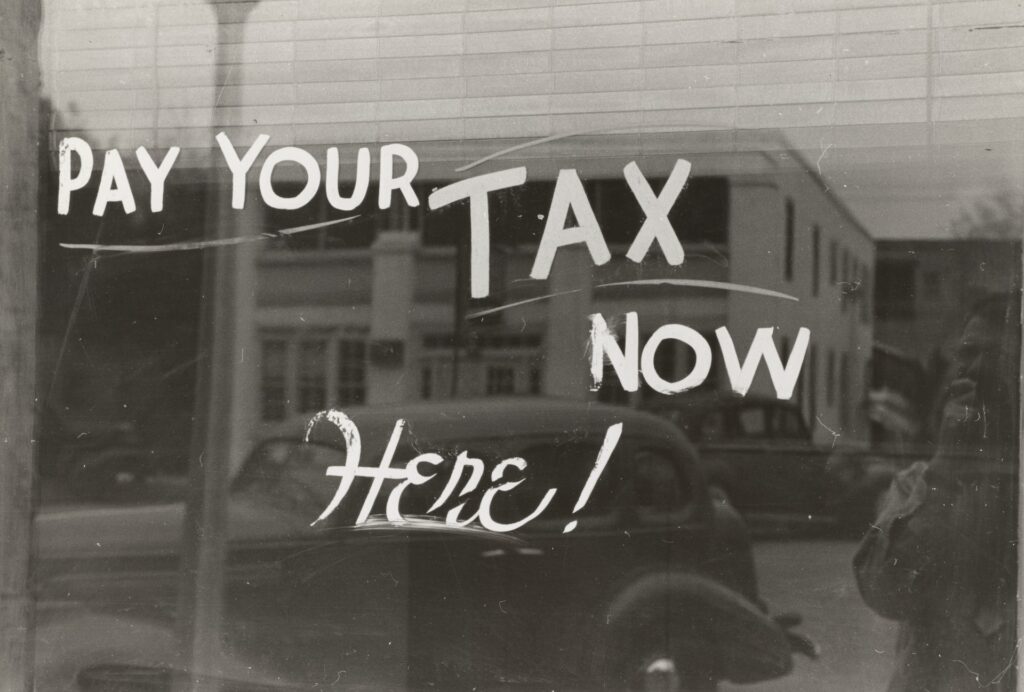IRS Self Rental Rules You Need to Know

Understanding how to properly handle rental income and expenses is crucial for anyone involved in rental property ownership or management. The IRS enforces specific self rental rules and how they may affect you to ensure rental activities are correctly reported for tax purposes, and being familiar with these rules can help you navigate compliance more effectively.
As a landlord or property manager, knowing which rental expense deductions you can claim and steering clear of common mistakes can make a significant difference during tax season. In this article, you will gain valuable insights into the essentials of self rental rules and answers to some of the most frequently asked questions in this area.
Key Takeaways
- IRS self rental rules determine how rental income and expenses are reported.
- Recognizing allowable expense deductions can benefit rental property owners.
- Answers to common questions help clarify the self rental process for taxpayers.
The Basics of the IRS Self Rental Rules
Completing and filing Schedule E
You are required to report rental income and expenses from self-rentals and other rental properties using IRS Schedule E. This applies to any rental activity, whether your property is leased to a tenant, an operating company you own, or as part of a partnership, LLC, or s corporation.
Schedule E Breakdown:
- Part I: List your total rental income, including any money earned from parking, storage, or other property-related sources.
- Part II: Enter your rental expenses, such as insurance, repairs, taxes, utilities, and property management fees.
- Part III: Calculate your net profit or loss by subtracting total expenses from total income.
A simple table to illustrate:
| Section | What to Report | Examples |
|---|---|---|
| Part I | Rental income from all sources | Rent, laundry, parking |
| Part II | Rental property expenses | Maintenance, taxes, fees |
| Part III | Calculate net income or loss | Income – Expenses = Result |
Make sure you gather:
- Property descriptions and addresses
- Owner and tenant details
- Dates when rental activity started
- Accurate amounts for all income and expenses
If you rent to a business or partnership in which you materially participate, the self-rental rules say that your rental income is usually treated as nonpassive, even though losses from the rental activity may be classified as passive. This treatment can affect deductions and how passive activity loss rules apply, especially for commercial real estate and rental properties held for your operating company.
Key notes for Schedule E:
- Applicable for both long-term rental real estate and short-term rentals (like Airbnb or VRBO), provided you’re not offering substantial services.
- If you rent out a portion of your primary residence, parts of the activity might be reported elsewhere (e.g., Schedule C).
- Self-rental income exempt from the Net Investment Income Tax (NIIT), unlike passive income from unrelated parties.
Why Schedule E Matters
Schedule E plays a pivotal role in distinguishing between passive and nonpassive income for rental activities. When you file using Schedule E, you ensure that rental income, expenses, and losses are properly classified under the passive activity loss rules of sec. 469.
Reporting on this form determines your taxable income from rental real estate activity and allows for legitimate deductions, reducing overall tax liability. It also impacts whether you need to group your rental and business activities via a grouping election, and affects earnings classification if you’re a real estate professional or a material participant.
Proper completion is crucial for partnerships, llcs, s corporations, and anyone involved in self-rentals. By following the self-rental rules and using Schedule E correctly, you help ensure compliance with IRS tax law for all types of rental activities, from commercial real estate to single-family homes.
For those engaged in specified service trades or businesses (sstb), Schedule E reporting can also influence self-employment tax considerations. Ultimately, it’s the backbone for accurate passive activities reporting and a safeguard against potential issues with IRS audits.
12 Common Rental Expense Deductions for Landlords

1. Advertising
You can deduct money spent promoting your rental property. This includes costs for online ads, newspaper classifieds, flyers, or signs posted on the premises. Screening expenses like tenant background and credit checks are also deductible.
2. Insurance
Premiums paid for property insurance, liability coverage, flood, or windstorm insurance are generally tax-deductible business expenses. Mortgage lenders may require some of these policies, but you can deduct the full premium amount tied to your rental.
3. Interest
Mortgage interest on your rental property is deductible, along with interest on credit cards or lines of credit used for rental-related improvements. Maintaining clear records is crucial, especially if any borrowed funds are mixed with personal expenses. Rental interest deductions are subject to passive activity rules under IRS guidelines.
4. Legal and professional fees
Fees you pay to attorneys, accountants, property management firms, and professional organizations are deductible. This could cover legal help for evictions, advice on lease agreements, or tax preparation specific to your rental business. Consult a qualified tax advisor to ensure all your expenses meet IRS requirements.
5. Maintenance and repairs
Routine maintenance and repairs that keep your property in service are fully deductible in the year paid. This covers tasks like painting, fixing leaks, appliance repairs, and yard work. Renovations and improvements are not immediately deductible; instead, these are typically depreciated over several years as part of your asset’s cost basis under depreciation rules.
6. Property taxes

Property taxes paid on your rental property can generally be deducted. These taxes can reduce your overall taxable rental income. Rental losses, which may result after deducting property taxes and other expenses, are usually considered passive losses. Suspended passive losses may be carried forward and applied to future rental income or upon the sale of the property, subject to IRS rules.
7. Utilities
If you pay for utilities like water, gas, electricity, or trash on behalf of your tenants, those costs can be deducted against your rental income. If your tenants pay utilities directly, you cannot claim these expenses. To deduct, ensure the utilities are paid as part of your rental agreement.
8. Supplies
Supplies purchased specifically for your rental operation—cleaning products, replacement lightbulbs, smoke detectors, or tools—are deductible. Maintain receipts and records for each purchase to document the business purpose.
9. Depreciation
You must depreciate the value of your rental building (not the land) and qualifying improvements over their useful life—usually 27.5 years for residential properties and 39 years for commercial. Depreciation also spreads out the cost of large renovations and upgrades, rather than deducting the full expense in a single year. Tracking depreciation is crucial for landlords, since it can generate a rental loss (subject to passive activity rules under sec. 469(c)), which might offset other passive income.
10. Travel
Travel expenses for activities directly related to managing your rental—such as property visits, meetings with tenants, or attending industry seminars—are deductible. Save detailed logs of mileage, tolls, parking, airfare, lodging, and meals (when traveling away overnight for business). Local travel for showing units or collecting rent may also qualify.
11. Home office expenses
If you use space in your home exclusively and regularly for managing your rental activity, you may deduct a portion of home expenses. Eligible deductions include part of your mortgage interest, insurance, utilities, and repairs proportional to the office’s size compared to your entire home. This deduction requires that your rental operation rises to the level of a trade or business.
12. Losses due to casualty or theft
Losses from fire, flood, vandalism, or other sudden and unexpected events may be deductible. These deductions are typically subject to certain thresholds and limits based on the property’s value and any insurance reimbursements received. Reporting a rental net loss after a casualty could result in a passive activity loss, which may be limited under current passive activity loss rules.
Related Reading:
- Publication 527 (2024), Residential Rental Property – IRS
- 15 Potential Tax Deductions for Landlords
- Risks and Opportunities of Self-Rental Rules
Frequently Asked Questions
How does one report income from renting to a family member?
When you rent property to a family member, the IRS expects you to report all rental income just as you would with any other tenant. If you are charging below fair market value, your deductions may be limited, and you generally cannot claim a rental loss. The IRS views below-market rentals as personal use, and you’ll only be able to deduct expenses up to the amount of rental income received.
What are the tax implications for rent-to-own property agreements?
In a rent-to-own agreement, income you receive from the tenant as rent must be reported as rental income. If part of the payment is allocated toward the future purchase, that portion may be considered a down payment and could affect how you report income and expenses. The details of your agreement will determine reporting obligations, but all amounts received should be reported annually as required by the IRS. For more on how the IRS treats various types of rental income, you can visit this IRS topic page on rental income and expenses.
Under what circumstances should Schedule C versus Schedule E be used for reporting rental income?
Use Schedule E (Form 1040) to report rental income from real estate unless you provide substantial services to your tenants, such as daily maid service or meals, similar to those provided by hotels and boarding houses. If you are actively running a business providing such services, you would use Schedule C. In most self-rental cases, Schedule E is appropriate.
Which deductions are commonly available for rental properties?
You can deduct expenses that are ordinary and necessary for managing and maintaining your rental property. Some common deductions include:
- Mortgage interest
- Property tax
- Operating expenses
- Depreciation
- Repairs
Refer to this detailed IRS guide on rental income and expenses for more information.
Are there any exceptions to reporting rental income if the property did not generate a profit?
Even if your rental activity does not generate a profit, you are still required to report the income. The IRS does not consider the property’s profitability when determining reporting obligations. However, passive activity loss rules and the self-rental rules may affect your ability to deduct losses in certain situations. More on this can be found in the article outlining self-rental rules and their risks.
How does personal use of a rental property affect its tax treatment?
Personal use of your rental property—such as staying in the property yourself or letting friends and family use it below market rates—can limit the deductions you may claim. For example, if you use the property for more than 14 days or more than 10% of the total days rented at a fair price, you must prorate expenses between rental and personal use. These rules help determine what portion of expenses you can deduct and how the income is reported.
Wondering where the savviest investors find their best deals?
Access the largest database of foreclosure properties nationwide and discover below-market deals before other investors. Start your search today!
Discover the secret to stress-free property management with How To Find & Keep Great Tenants. This essential guide reveals proven strategies for attracting high-quality renters and creating long-term, mutually beneficial relationships.
But finding great tenants is only half the battle. Uncover the art of tenant retention, from creating a positive living environment to addressing concerns promptly and professionally.
With this book, you’ll transform your rental property into a sought-after home that tenants won’t want to leave. Minimize vacancies, reduce turnover costs, and maximize your investment’s potential by mastering the skills to find and keep exceptional tenants.


